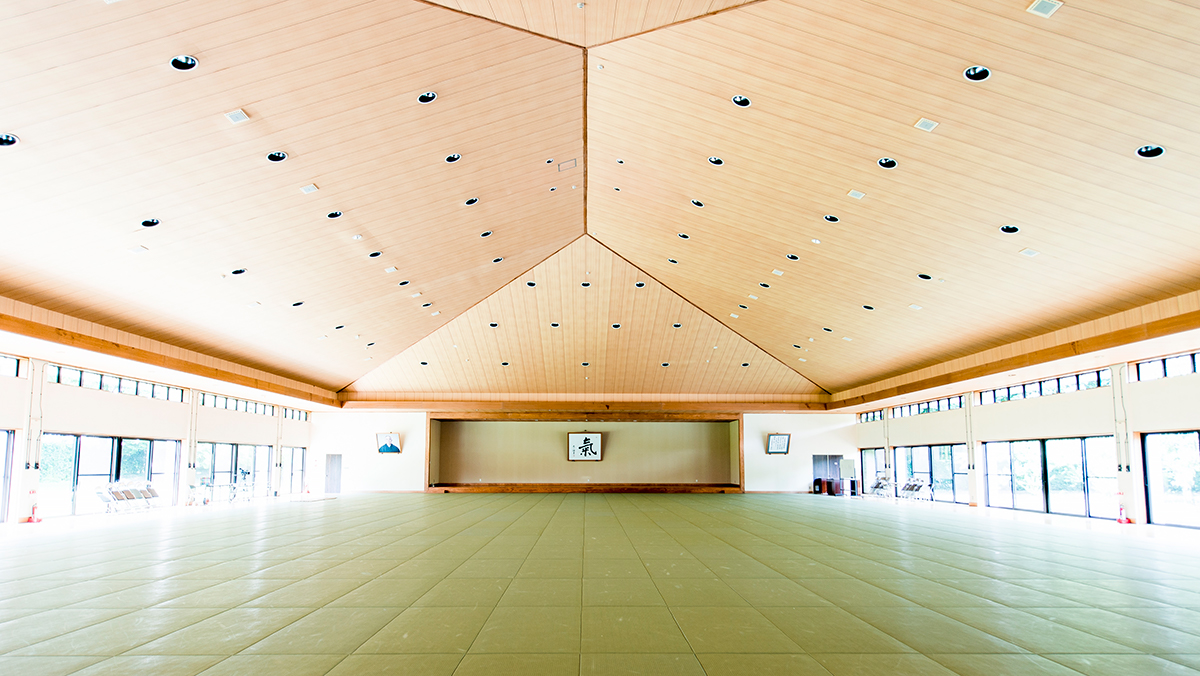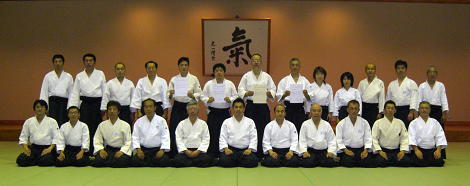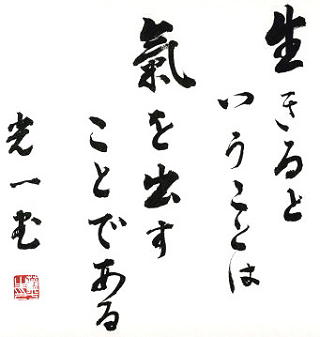A Short Instruction:
The purpose of this article is to practice and validate the Ki principle (Mind moves body) which is the foundation of Ki-Aikido in our daily life. Therefore, it has no meaning if you just read it without practicing it.
The fundamental method of mastering anything is practice. However, it is not enough just to practice, but it is also important to validate how one has changed as a result of the practice.
It is easy to lose what you have learned without practice. On the other hand, you will never lose what you have learned through practice and validation. Therefore, please read, practice, and validate the contents of my article for at least one month.
Sending Ki In Advance
Throughout the year, I have a number of different responsibilities each day, such as the teaching in seminars, meetings, news gathering, negotiations, and the education of Uchideshi, etc.
There is tremendous energy needed when making important decisions. If ten or twenty decisions need to be made in a day, I will be totally exhausted unless I have good strategies to deal with such a great number of jobs.
In fact, with only a small effort, we can handle the jobs easily. That is, “to send Ki to all the things to do in advance”.
The job to which we direct our Ki willingly is not tiring, however, the one which we feel we need to do because we are told to do so and to which our Ki is not directed, is very tiring. This is the difference between “Ki goes in advance of doing the jobs” and “Do the jobs and Ki comes later.” Even if the time difference of Ki is only an instant, it causes a very big difference.
Let us assume that we have many things to do today. If one job is troublesome, that job will stick in our mind and our mind will not be fully directed to the next job. Our Ki gradually gets delayed. Then, our concentration is lost, efficiency gets lower and we feel exhausted.
If our Ki goes through all the events and tasks in advance, our concentration will not be lost half way through. However, if our Ki reaches only half way, our concentration will be lost then, as Ki was cut off, and as a result we get exhausted and even many incomplete tasks are left behind.
Then, what should we do specifically? I will show you one example. Write down all the events and tasks at the beginning of the day (or in the evening before the day if possible) and do the necessary preparations and arrangements. By doing so, we can send our Ki to all the things to do from the beginning to the end of each day. Then, each planned tasks and event becomes a stream of line in mind, not just separate events. In this case, our Ki will not be cut off at the half way point.
“Sending Ki to all the things we do in advance” does not mean to try hard and become tense unnecessarily. Rather, it means to use our mind clearly and naturally.
The example above is for sending Ki to all planned events in the daily schedule. Also you can try to send Ki ahead of time for a specific event. For example, when you take a break, first make preparation for the next thing to do, then rest. In this way you will naturally send Ki to the next event or task in advance. By doing so, you will feel comfortable to come back to the job after the break. Without this process, you will feel uneasy coming back to the job and as a result you will become very tired.
There are many people who get sick on holiday. It is because their Ki is cut off when they take holiday. By making the necessary preparations and arrangements for the post-holiday jobs before taking the holiday, our Ki will not be cut off and we will feel comfortable to come back to work. In this way we can have a holiday free of worry.
Since having learned “Sending Ki in advance”, I have not felt tired even having a busy schedule. Also I have not had sickness on holiday.
I often have the opportunity to see people who play active roles and have great success on the front lines in every field, but I have never heard any of them saying “Oh, I am so busy!” They appear to be enjoying their work very much, though their schedule may be even busier than mine.
People who repeat “I am busy! I am busy!” are impatient and busy only in their mind. There are not so many people who are really busy in a true sense. In the Japanese language, the word “busy” is written in a way to mean “mind is lost”.
The people who are enjoying themselves even though they have busy schedules, are not pretending this enjoyment, but actually enjoy their work by sending Ki to the future events.
The following is the practice and validation for this month.
[Point of practice]
・ Before a holiday or taking a break, make preparation and arrangement for what you will return to. (Send Ki to the next schedule in advance)
・Send Ki to all the things to do for the next day.
[Point of validation]
・Record in a notebook how you observed the differences after practicing the above.



